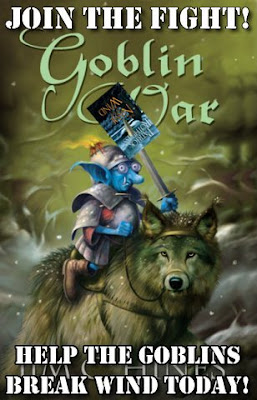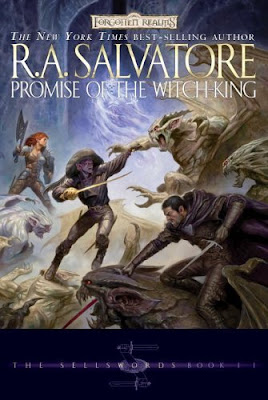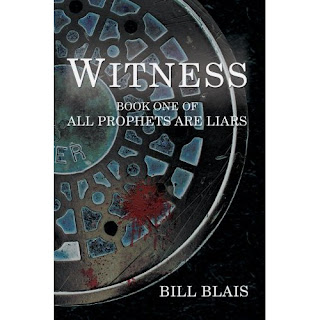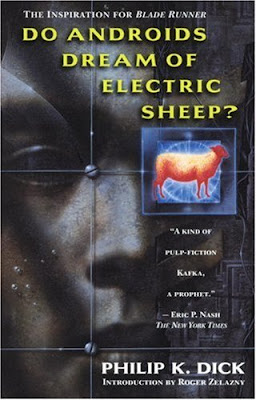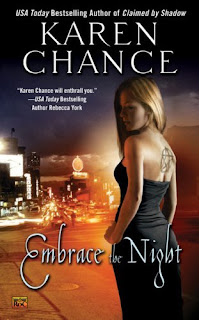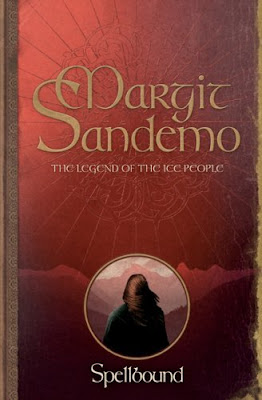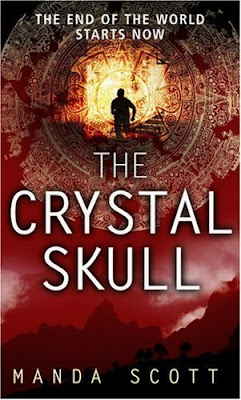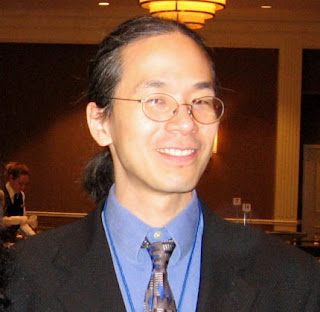Like I said in the presentation of my blog I don't enjoy much e-books. But after I e-mailed to Night Shades Books and received the offer from John Joseph Adams for "Wastelands: Stories of the Apocalypse" I reconsidered seeing the names gathered in this anthology. And even I didn't changed my mind about e-books this anthology is great. I always loved apocalypse scenarios, in the list of my favourite movies are the three "Mad Max" movies and also I enjoyed playing "Fallout", two games that take place in an apocalyptic world. Adding to this Stephen King's "The Stand" and Richard Matheson's "I Am Legend", two of my favourite books, you can see my interest in this subject, interest that was fully satisfied and now "Wastelands: Stories of the Apocalypse" has its place in my heart.
John Joseph Adams' anthology has collected 22 stories, some optimistic, some dark, some with hope for a new beginning. Many of this stories follow the humans reactions facing their tragedy and the outcome of the humanity. The range of the worlds is excellent and every one of them makes you curious about the next author's vision of the post-apocalyptic world. Let's see them one by one.
"The End of the Whole Mess" by Stephen King. It is the story of two brothers with an above average intelligence, the older one is telling the story and the little one, a genius, tries to find a cure for human violence. After developing such a cure and spreading it in the world he discovers that the side effect is worst. I liked this story because it is told in the first person, actually the main character writes his story as his last words, and because the author manages to create a connection between me and the character. I also liked a little thing imagined by Stephen King, Mexico being communist and between Mexico and USA exists a wall like the Berlin wall.
"Salvage" by Orson Scott Card. The story is about an orphan young boy, Deaver, that looks for and retrieves old machines. He is looking for a treasure buried in a Mormon Temple, under water. When he finds out that what was buried isn't exactly what he is looking for new emotions overcome him. The story is about religion, about faith or the lack of it and about friendship and human emotions.
"The People of Sand and Slag" by Paolo Bacigalupi. In the future humans become almost invincible and immortal through technology, "weeviltech". They can eat mud, dirt and sand, every wound heals very fast and the body parts which they lose can grow back. Three guards of a mining company found a dog, a real dog not an engineered one, they're facing their humanity, or what it is left of it. It's an interesting story, about the outcome of the human emotions and feelings in a technological future.
"Breads and Bombs" by M. Rickett. A family of refugees comes to a small town and being former enemies doesn't help them to integrate in this society. Adding the paranoid behavior of some of the town's inhabitants they face the threat of lynching also. The story deals mainly with the loss of innocence, about prejudice and the fear of terrorism.
"How We Got in Town and Out Again" by Jonathan Lethem. In a land where the resources are scarce and where the towns became real fortresses guarded by local militia two teenagers that wander the land in search of food, enter in such a town with a troop who stages virtual reality competitions. They take part in a contest that awards the most resistant player in this virtual reality marathon with 1000$ and for their participation they get free food. The characters, in spite of their fight for survival and their dealings with human exploitation, keep a measure of hope and optimism.
"Dark, Dark Were the Tunnels" by George R.R. Martin. Half of a millennium after a global nuclear war, two groups of humans that have survived encounter each other. Geel is a scout of The People, a group of humans that survived and lives in deep underground tunnels, and he explores the upper tunnels. Cliffonetto and Von der Stadt are two explorers of the group of humans that survived in a lunar colony, and they arrived on Earth in a research team. Their surprising encounter is not as those three characters expected and has a terrible end. I liked this story because George R.R. Martin manages to create new species, like the predatory worms or like the rats that cohabitate with the humans and I liked how the author saw the outcome of human kind, forced by an apocalyptic event to separate in two groups, becomes two two different races every one transformed and adapted to its own new environment.
"Waiting for the Zephyr" by Tobias S. Buckell. In a world that has a shortage of oil and relies on wind power, Mara, a inhabitant of a small town seeks a new faith. She believes that in a larger city she will fare better, but she faces the opposition of her family. When Zephyr, a wind driven ship, arrives in her town she grabs the chance to escape. This story is the most optimistic of the entire anthology.
"Never Despair" by Jack McDevitt. Two survivors of an apocalyptic event are in search of Haven, a city that is supposed to have the records of the lost world. When they almost abandoned their search, one of them, Chaka, meets with a hologram, a character that will be very familiar to the readers, and after their conversation Chaka founds new courage and hope to continue their search.
"When Sysadmins Ruled the Earth" by Cory Doctorow. In this story we get to live the apocalyptic event as it happens. Some systme administrators are working on their servers after an emergency call and they are trapped in their building when some terrible events, nuclear, biological and human agression, occur. Felix, the main character, loses his wife and child, but tries to build a new and better world. Even though I was lost sometime in the technical language I liked the story because Cory Doctorow puts us in the middle of the apocalyptic events.
"The Last of the O-Forms" by James Van Pelt. The world suffers from a plague that produces great genetic mutations. Trevin collects mutated creatures and expose them in Dr. Trevin's Travelling Zoological Extravaganza. But his business is running low because the mutations are a common thing and the people are losing interest in them. But maybe the answer is found in the original form of animals and humans, the so called 0-form. I found the names of the mutated beings, crocomouse, tigerzelle, funny and interesting, and they let my imagination go wild.
"Still Life with Apocalypse" by Richard Kadrey. This is the shortest story of the anthology but creates a sensation of desperation and futility in the human actions after an apocalyptic event.
"Artie's Angels" by Catherine Wells. The people live under domes that protect them from the radiation. Life under the domes is getting harder with the increasing numbers of people that are let inside them. Artie is a young boy, charismatic and very active. He leads a group of children, giving them hope and a sense of living in a lawless and hopeless environment. The story is told through a young girl, Morgan, her real name Faye, that assists Artie and in the end manages to transform the tragedy of the group in a new hope.
"Judgment Passed" by Jerry Oltion. A space flight crew returns to Earth only to find out an empty planet. According to an old newspaper Jesus has come back and took with him all the Earth inhabitants. The eight astronauts found themselves in front of a dilemma, to try to contact God and find out what will happen to them or to try to live their lives on the empty planet. The Jerry Oltion's story talks about some theological and philosophical themes, like the existence of God, the religion through the eyes of the world and the afterlife. It is an interesting read.
"Mute" by Gene Wolfe. The story is about two children that come home and find it empty and find an empty land. I have to admit that I didn't understand this story.
"Inertia" by Nancy Kress. The people infected with a disfiguring disease live in encampments build by the government. After many years in which the government tried to find a cure for the disease, it stopped the researches and now the inhabitants of the encampments live in isolation. Now, an outsider comes to an encampment and talks with its inhabitants. He is Tom McHab, a doctor that studies the disease and thinks that he has a cure for the physical affections of the disease. The doctor and his colleagues found out that the disease inhibits the urge for violence in the affected people's brains. And considering that the outside world is dominated by rage and violence he wants to spread the disease, treated at the skin level, in the world. It's an interesting story about hope and resignation.
"And the Deep Blue Sea" by Elizabeth Bear. Harrie, a motorcycle courier, has to deliver a case containing fetal cell stem cultures to Sacramento. She has to ride through a desolated land, full of toxic radiations and through towns ruined and destroyed. Beside that she has to rationalize her fuel and a time limit she also has to deal with a man, Nick, which wants to collect a debt. Harrie is confronted with a dilemma, the personal gain or to save some people that she doesn't know. And the end of Elizabeth Bear's story leaves you with an option of your own.
"Speech Sounds" by Octavia E. Butler. In a post-apocalyptic world, after a disease affected the population taking their capacity of speech, Rye travels in a bus from LA to Pasadena. Rye is a former history teacher and her illness has affected her capacity to read and write, but not her speech although she has to hide this fact. In the bus where she travels a violent conflict occurs and at the scene comes a man that seems to be a cop, although such institutions don't exist anymore. After he ends the conflict Rye leaves with him. Despite her envy for his capacity to write and read she longs for the human contact and after the interaction with another human being. At the end of the story Rye finds two children with their capacity of speech intact and the new human contact gives her hope and a new meaning.
"Killers" by Carol Emshwiller. After many years of war the towns miss the presence of males, many of them killed or disappeared in the conflict. In such a town, our heroine misses her brother and thinks he is missing in the war. In the nearby mountains live and hide veterans of war. When their bodies appear in town and our heroine finds a stranger in her house, in spite of the common sense she, longing for her brother and for a male companionship, takes him in her care. She cleans him and hides him in her house and after a while she introduces him to the community. The end of the story is brutal and talks about human desperation and egoism.
"Ginny Sweethips' Flying Circus" by Neal Barrett, Jr. A troop composed by Del, an android barker, by Possum Dark, a marsupial bodyguard and Ginny, the star of a sexual show, travels through land offering to the survivors sex, tacos and dangerous drugs in exchange for gasoline or other goods. After they stop in a town for repairs they found themselves confronting a group of insurance salesman. In spite of the humor of the story and some comic situations, the story is one of the few of this anthology that didn't hit the mark with me.
"The End of the World as We Know It" by Dale Bailey. The main character, Wyndham, finds himself alone in the world after an apocalyptic disaster. But Wyndham is affected more by the loss of his wife than the apocalyptic event. I liked this story a lot, because Dale Bailey includes in his story some references to real historical events that seemed apocalyptic at their time like the bubonic plague that hit Europe, the eruption of Krakatoa in 1883, the Holocaust and other events and the fact that a personal loss can be as catastrophic as an apocalyptic event.
"A Song Before Sunset" by David Grigg. Parnell, a former piano player, fights for survival in his apocalyptic world. He hunts rats and seeks different objects in order to trade them for food and clothes. After discovering a sledgehammer he works his way into a concert hall and finds a piano. He retunes it and he plays it, but finds himself confronting one of a Vandalmen, a group that roams the land destroying the cultural edifices. The story is about the need for culture and art and about the human need for appreciation of his talents.
"Episode Seven..." by John Langan. The two protagonists, a pregnant young lady, Jackie and a comic book fan, Wayne, try to escape of a pack of mutant animals that chases them, after escaping of a mortal virus that killed the world. Like the author said in the introduction this story is a response to Dave Bailey's story. If Wyndham is hopeless and has no desire for survival, this story's characters fight for their lives, and that of the unborn child, with all they got. They lay traps, they run and they try to kill the pack that chases them. The original part of the story is the way the author writes it. There are very long sentences, pages that are long phrases and the story is interrupted by the present actions only by sentences written in bold. Even though the style is complicated it is interesting and gives the story pace and thrill.
Overall I really enjoyed John Joseph Adams' anthology. There were very few stories I didn't liked but that is the case with all the anthologies you can't love them all. I also enjoyed the recommendation list on the subject that I found at the end of the volume. It is a very good book, with different stories that gathers different views of the apocalyptic events and I highly recommend it.









